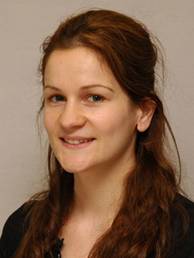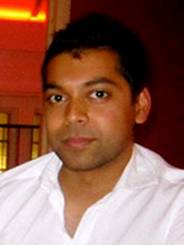
Here is the 2nd of our series of guest blogs by PhD holders who work at IMS Consulting Group. You will find more information about PhD life science careers and IMS Consulting Group in our Careers in Clinical Research, Biotechnology and Pharmaceuticals Forum for PhD/research students which will be held on 28th February 2012. Go to the Forum page on the Graduate School website for more details about this event.
 IMSCG’s business is management consulting to the life sciences sector. So it makes sense that the company has two main priorities when recruiting: the competencies required to be a management consultant and a strong interest in, and perhaps some background knowledge of, the life sciences sector. PhDs, especially those from the natural sciences, are therefore an excellent group in which to find promising candidates with this combination of characteristics.
IMSCG’s business is management consulting to the life sciences sector. So it makes sense that the company has two main priorities when recruiting: the competencies required to be a management consultant and a strong interest in, and perhaps some background knowledge of, the life sciences sector. PhDs, especially those from the natural sciences, are therefore an excellent group in which to find promising candidates with this combination of characteristics.
The tendency for natural sciences PhDs to be interested in the life sciences sector is not surprising (although the emotive and pervasive nature of healthcare in our lives also attracts many PhDs from other disciplines). But what about the management consulting competencies?
A major part of the core skills of a management consultant is bringing objectivity, structured thinking and analysis to a complex and unstructured question. Consultants are curious people who enjoy problem solving. PhDs similarly tend to be curious by nature, interested in solving problems and combining objectivity and analysis in one form or another to a specific issue.
My PhD has definitely been a helpful starting point for these core management consulting skills. It gave me experience looking at a large and complex overall question and coming up with a way of approaching that question in individual steps. It gave me experience thinking about how to organize and present complex data and how to communicate the outputs of my research. And during my PhD, I took ownership for the outcomes of my own work, giving me a good sense of accountability.
That isn’t to say that my academic-type problem solving and analytical skills were enough on their own for management consulting at IMSCG. The thinking in consulting is much more explicitly structured and analytical than in academia; I therefore had to sharpen up on these skills before the interviews. I also had to learn how to do it in a much faster-paced environment, more intensively within a team, and with much shorter time periods for producing and showing people outputs of the work.
As my PhD was in the life sciences it also helped with understanding the more technical side of the life sciences sector. But if you don’t faint at the sight of words like atorvastatin or bevacizumab, then you can also learn that on the job!
Joel Hooper, IMS Consulting
Filed under PhD, Uncategorized
Tags: analytical skills, Biotechnology, careers, Careers case study, clinical research, Consultancy, healthcare, life science, Pharmaceuticals, research skills
No Comments »
 Close
Close






